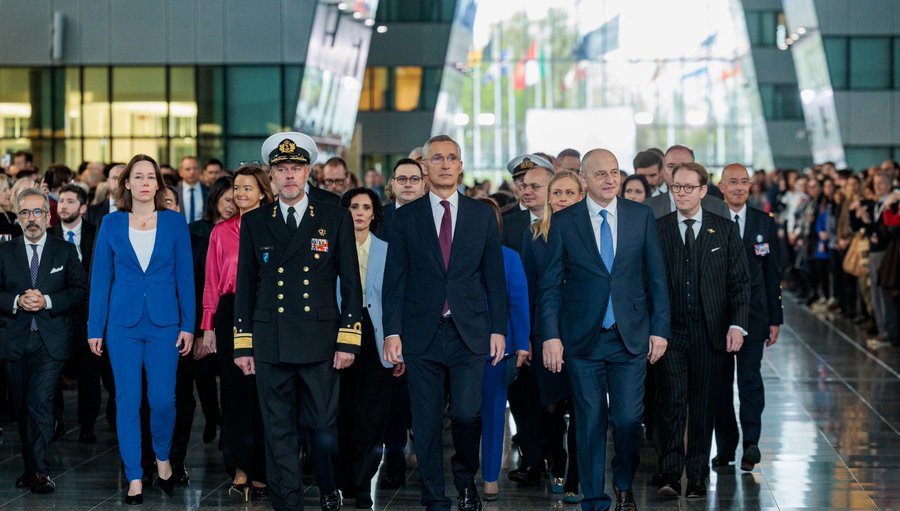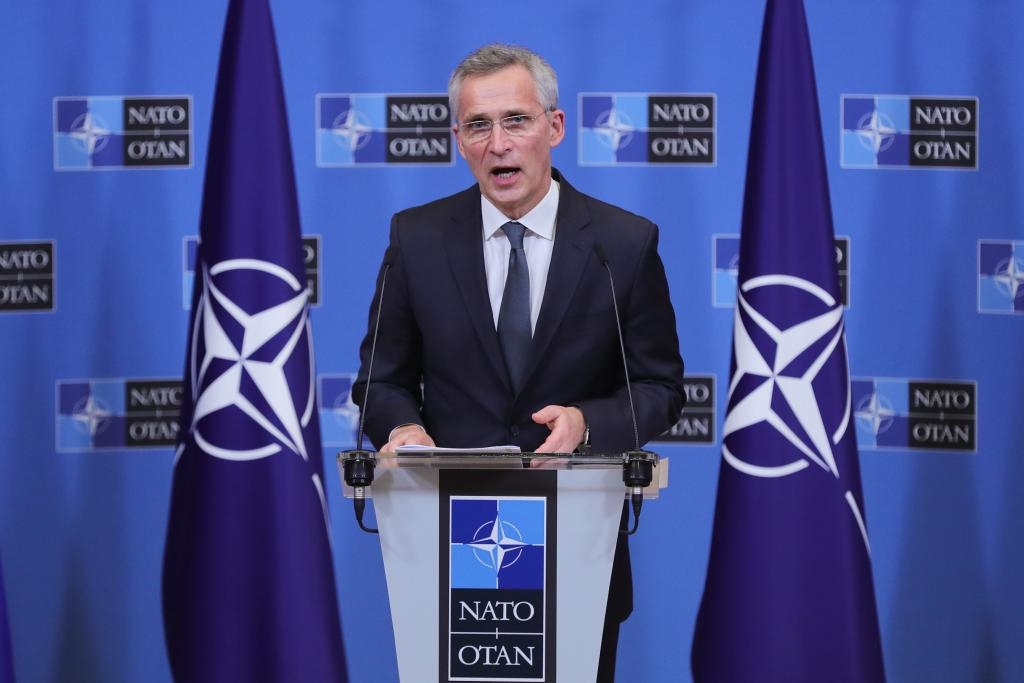Lacking air superiority and faced with formidable Russian defences, Ukraine’s counter-offensive ground to a halt last year and is now at risk of being outgunned on the front line in the east…reports Asian Lite News
Europe and the US need each other and are “stronger together”, the secretary-general of Nato has said. Jens Stoltenberg was speaking at a ceremony marking the alliance’s 75th anniversary.
While the US provided Europe with security, he said it also needed the militaries, intelligence and diplomatic leverage of its European allies.
“I don’t believe in America alone just as I don’t believe in Europe alone,” Stoltenberg said. “I believe in America and Europe together in Nato, because we are stronger and safer together.”
The Nato chief’s remarks came as the alliance considered a €100bn (£86bn) five-year fund to provide long-term military support for Ukraine, so aid to Kyiv is not jeopardised by political changes either in the US or other Nato states.
A US package worth $60bn (£47bn) has been stalled in Congress for months because of resistance from Republican lawmakers, as well as Republican presidential candidate Donald Trump, who has spoken of ending the war “in one day”.
During his speech, Stoltenberg said Nato must be “doing something right”, as it had grown from 12 countries at its inception to 32. Its newest members Sweden and Finland abandoned their neutrality and joined the alliance as a result of Russia’s full-scale invasion of Ukraine.
Kremlin spokesman Dmitry Peskov said in response to the speech that relations between Russia and Nato had “slid to the level of direct confrontation” as the alliance was already “involved” in the conflict around Ukraine.
Although Nato is a defensive alliance Peskov alleged it “was conceived, configured, created and controlled by the US as a tool of confrontation” and was now a “destabilising element”.
The 32-member alliance has agreed to initiate planning for long-term military support for Ukraine.
Several countries have only backed the initiative in theory. Hungary, which has kept close ties with Russia, has warned it will not back “any Nato proposals proposals that might draw the alliance closer to war or shift it from a defensive to an offensive coalition”.
The Hungarian government has long sought to distance itself from international initiatives to fund Ukraine’s fight against Russia, and for a period blocked a EU plan to provide a €50bn (£43bn) aid package for Ukraine.
Stoltenberg acknowledged the framework of support was yet to be decided, but said Nato foreign ministers had agreed on the principle: “Make no mistake, Ukraine can rely on Nato support now and for the long haul.”
US Secretary of State Antony Blinken told reporters support for Ukraine within the alliance is “rock solid” and that he believes Ukraine will eventually become a member of Nato, Reuters reported.
Ukrainian Foreign Minister Dmytro Kuleba told reporters at Nato headquarters that while he did not want to “spoil [Nato]’s birthday party”, his country needed help in improving its air defences – specifically Patriot missiles.
“Saving Ukrainian lives, saving the Ukrainian economy and saving Ukrainian cities depends on the availability of Patriots and other air defence systems,” Kuleba said.
Lacking air superiority and faced with formidable Russian defences, Ukraine’s counter-offensive ground to a halt last year and is now at risk of being outgunned on the front line in the east.
The US has given Ukraine more financial aid than any other Nato state- more than $44bn (£34bn) since the 2022 invasion, according to the White House in December. However, its aid has now become caught up in a political row months before the presidential election.
Republican candidate Donald Trump has often criticised the level of spending. He has also long complained that the US has shouldered a greater financial burden than the rest of the alliance.
Fewer than two-thirds of Nato members are on course to reach their 2% funding goal.
Highlighting the importance of Nato’s European allies to the US, Stoltenberg noted it was America’s allies that came to its help after the 9/11 attacks in 2001. That was the only occasion that a key principle of the alliance has been invoked, in which an attack on one ally is seen as an attack on all.
Nato allies closest to Russia have stepped up efforts to boost their armed forces.
Norway is increasing its number of conscripted soldiers, while Denmark says it intends to extend conscription to women and increase the duration of service. Latvia and Sweden recently restarted military service, while Lithuania brought it back after Russia’s annexation of Crimea in 2014. Norway is increasing the number of conscripted soldiers, while Denmark says it intends to extend conscription to women and increase the duration of service. Latvia and Sweden recently restarted military service, while Lithuania brought it back after Russ
ALSO READ-Cameron calls for increased NATO spending amid Ukraine conflict


